Oct 9, 2015 | Focolare Worldwide
“Dear Synod Fathers, dear brothers and sisters, In resuming this morning the work of the General Congregation, I invite you to dedicate the prayer of the Third Hour to the intention of reconciliation and peace in the Middle East. We are painfully struck and we follow with great concern what is happening in Syria, in Iraq, in Jerusalem and the West Bank, where we see an escalation of violence that involves innocent civilians and continues to fuel a humanitarian crisis of enormous proportions. War brings destruction and multiplies the sufferings of peoples. Hope and progress come only from choices for peace. Let us unite, therefore, in an intense and confident prayer to the Lord, a prayer that intends to be an expression of solidarity at once with [our] brother Patriarchs and Bishops from those regions, who are present here [at the Synod Assembly], as well as with their priests and faithful, and to everyone who lives there. At the same time, together with the [whole] Synod, I send a heartfelt appeal to the international community, that the nations of the world might find a way effectively to help the parties concerned to broaden their horizons beyond the immediate interests and to use the instruments of international law [and] diplomacy, to resolve the conflicts underway at present. Finally, I wish to extend our prayer also to those areas of the African continent, which are experiencing analogous situations of conflict. May Mary, Queen of Peace and loving Mother of her children intercede for all”. (from Vatican Radio)
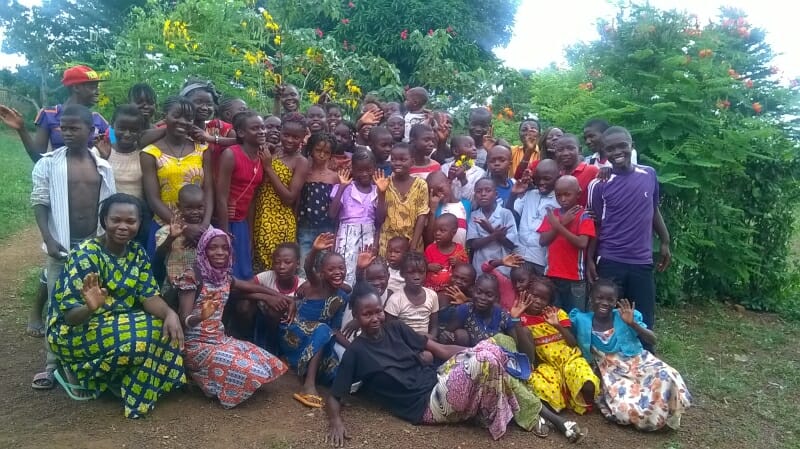
Oct 9, 2015 | Focolare Worldwide
 It is difficult to know the numbers – Misna sources report 60 dead with 300 wounded – and describe the events in a country that has been sinking in political crisis since March 2013 when a group of rebels overthrew the president; and there have been further outbreak in recent days. “The socio-political situation has worsened,” writes Geneviève Sanzé from the Central African Republic. “Christian families live between the house and the forest, so that they won’t be discovered at home and lose their lives. One priest, who lives in the north where the situation is quite serious, is offering shelter to 12,000 refugees in his parish, who are taking refuge from projectiles that are being launched all around them. He doesn’t know how he will care and find food for them. There is no more adminstrative , political or military authority in the region, and there is the constant danger of bombs in crowded areas.” From the Focolare of Bangui they write: “We were preparing to do something concrete to help promote the peace that our country is so much in need of: a sport competition with mixed teams of Christians and Muslims; a march for reconcilliation comprised of all sorts of ethnic and religious groups; a concert by several musical groups, including our own to help sway public opinion towards the need for peace; continuing visits to refugees here in Bangui and in the prison. We invited our Muslim friends and friends from different Christian churches to take part in organising these and other events, and they enthusiastically accepted.” “The first event had been planned for the 26th of September, but was not held because of a massacre that taken place here in Bangui on that day,” recounts Berndadine who works at the Nunciature. “It all began with the discovery of the lifeless body of a young Muslim woman in a Christian area. But the murderer and the circumstances surrounding the death are still unknown. In the span of a few hours non-Muslim homes were attacked, and many people were killed.” Death is everywhere, looting, destruction of houses, churches, schools, offices of international organisations and many displaced persons, including several from the Focolare community. Some have lost close relatives. They write: “We encourage each other to love, each one of us wherever we are, ready to die for our own people. Pray with us, for us and for everyone living in similar situations.” The city has seemed dead for days. “You didn’t go to work,” wrote Bernardine. “The shops were closed, the only vehicles on the street were those of the United Nations and the French Military. The population organised a protest calling everyone to civil disobedience, demanding the restoration of the national military to protect the people. More people died during the manifestation and everything stopped. Things have improved a bit in recent days, we’ve resumed some of our activities, although schools are still closed. We’re in God’s hands and we always believe in His love. Sooner or later there will even be peace in the Central African Republic.” And this hope is supported by the upcoming visit of the Pope in late November. Fidelia, from the focolare in Bangui, recounts: “The entire population, regardless of ethnic or religious group, joyfully awaits his coming. You can feel it in the air, that the people are expecting him as the bearer of hope. Everyone is preparing spiritually and materially in order to be disposed to welcome the graces that Pope Francis’s visit will bring.”
It is difficult to know the numbers – Misna sources report 60 dead with 300 wounded – and describe the events in a country that has been sinking in political crisis since March 2013 when a group of rebels overthrew the president; and there have been further outbreak in recent days. “The socio-political situation has worsened,” writes Geneviève Sanzé from the Central African Republic. “Christian families live between the house and the forest, so that they won’t be discovered at home and lose their lives. One priest, who lives in the north where the situation is quite serious, is offering shelter to 12,000 refugees in his parish, who are taking refuge from projectiles that are being launched all around them. He doesn’t know how he will care and find food for them. There is no more adminstrative , political or military authority in the region, and there is the constant danger of bombs in crowded areas.” From the Focolare of Bangui they write: “We were preparing to do something concrete to help promote the peace that our country is so much in need of: a sport competition with mixed teams of Christians and Muslims; a march for reconcilliation comprised of all sorts of ethnic and religious groups; a concert by several musical groups, including our own to help sway public opinion towards the need for peace; continuing visits to refugees here in Bangui and in the prison. We invited our Muslim friends and friends from different Christian churches to take part in organising these and other events, and they enthusiastically accepted.” “The first event had been planned for the 26th of September, but was not held because of a massacre that taken place here in Bangui on that day,” recounts Berndadine who works at the Nunciature. “It all began with the discovery of the lifeless body of a young Muslim woman in a Christian area. But the murderer and the circumstances surrounding the death are still unknown. In the span of a few hours non-Muslim homes were attacked, and many people were killed.” Death is everywhere, looting, destruction of houses, churches, schools, offices of international organisations and many displaced persons, including several from the Focolare community. Some have lost close relatives. They write: “We encourage each other to love, each one of us wherever we are, ready to die for our own people. Pray with us, for us and for everyone living in similar situations.” The city has seemed dead for days. “You didn’t go to work,” wrote Bernardine. “The shops were closed, the only vehicles on the street were those of the United Nations and the French Military. The population organised a protest calling everyone to civil disobedience, demanding the restoration of the national military to protect the people. More people died during the manifestation and everything stopped. Things have improved a bit in recent days, we’ve resumed some of our activities, although schools are still closed. We’re in God’s hands and we always believe in His love. Sooner or later there will even be peace in the Central African Republic.” And this hope is supported by the upcoming visit of the Pope in late November. Fidelia, from the focolare in Bangui, recounts: “The entire population, regardless of ethnic or religious group, joyfully awaits his coming. You can feel it in the air, that the people are expecting him as the bearer of hope. Everyone is preparing spiritually and materially in order to be disposed to welcome the graces that Pope Francis’s visit will bring.”
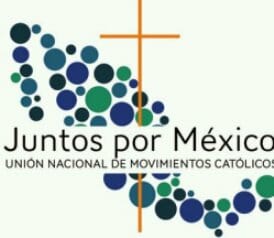
Oct 8, 2015 | Non categorizzato
 JUNTOS POR MEXICO (Together for Mexico) is a venue for meetings and mutual respect in order to facilitate joint actions for the spiritual and social good of the country. The event will have a festive but also reflective nature, with formation and education dedicated to the whole family. More than 10,000 people are expected to attend, and will reflect on the theme of the family and the role of the lay person in society according to different perspectives: anthropological, spiritual, social, and political. One of the most anticipated and important topics is the vision of young people. On the list of international speakers are Dr. Giovanni Impagliazzo (Italy), Coordinator for Latin America of the Community of Sant’Egidio; Mr. Ricardo Sada L.C., the local director of Regnum Christi; Dr. Maria Consuelo Queremel, the Vice Minister General of the Secular Franciscan Order. Speaking for the Focolare Movement are the co-president, Dr. Jesús Morán (Spain) and spouses Anna and Alberto Friso (Italy), members of the Pontifical Council for the Family. Also present will be Margaret Karram (Israel) and Marc St-Hilaire (Canada), who are responsible for the dialogue with other ecclesial movements. The event will be transmitted in streaming at www.juntospormexico.org.mx
JUNTOS POR MEXICO (Together for Mexico) is a venue for meetings and mutual respect in order to facilitate joint actions for the spiritual and social good of the country. The event will have a festive but also reflective nature, with formation and education dedicated to the whole family. More than 10,000 people are expected to attend, and will reflect on the theme of the family and the role of the lay person in society according to different perspectives: anthropological, spiritual, social, and political. One of the most anticipated and important topics is the vision of young people. On the list of international speakers are Dr. Giovanni Impagliazzo (Italy), Coordinator for Latin America of the Community of Sant’Egidio; Mr. Ricardo Sada L.C., the local director of Regnum Christi; Dr. Maria Consuelo Queremel, the Vice Minister General of the Secular Franciscan Order. Speaking for the Focolare Movement are the co-president, Dr. Jesús Morán (Spain) and spouses Anna and Alberto Friso (Italy), members of the Pontifical Council for the Family. Also present will be Margaret Karram (Israel) and Marc St-Hilaire (Canada), who are responsible for the dialogue with other ecclesial movements. The event will be transmitted in streaming at www.juntospormexico.org.mx
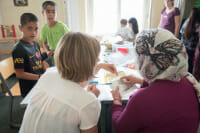
Oct 8, 2015 | Non categorizzato
 Germany has repeatedly made it in the headlines due to its controversial policies regarding refugees, that stirred up a reaction of the people in welcoming the many migrants who have arrived. Also the Focolare Movement in Germany has been working for many years now for the integration of immigrants into the social context, and intensifying its welcoming initiatives in this period. Starting from the most basic needs – such as the collection of food, clothing, furniture and other basic items, German lessons and looking for medical or legal aid – to that of a man in Aschaffenburg, define “a counter attack.” In some cities there were also some violent episodes against the refugees and those who were helping them, but there was the firm decision to respond by giving a counter-testimonial, a message which came through forcefully. The Focolare of Dresda organized in this perspective, a soiree on the theme, “Love your neighbour as yourself.” One of the organizers said “we see how many live in anxiety or even fear: the soiree was very useful, and encouraged many people to undertake actions together.” In addition to this, there was also a social media campaign, #openyourborders and #signupforpeace, launched at international levels by the Youth for United World, together with the aim of giving a further boost to the initiatives of the United World Project. But there are also concrete examples of daily life, like that of a couple from Munich, Bayern. The evening before their departure for a weekend excursion outside the city, they received a phone call asking for their willingness to host for the weekend, a young Syrian mother with three small children, while waiting to continue her journey to Karlsruhe. Though they hoped that the four would leave soon so they could at least spend a part of the weekend in the mountains, the couple – despite their internal conflict – accepted; but “the moment we took the hand of our little five-year-old princess, the ice was immediately broken,” they wrote. The weekend with the unexpected guests passed with the games played with the children, sharing their breakfast where “we renounced hotdogs out of respect for our Muslim guests who highly appreciated the yoghurt and flatbread we bought for them,” and a Syrian supper prepared together. And when we had to say goodbye on Sunday morning, “we all had tears in our eyes, and were happy and mutually grateful” – wrote the couple. What a gift the Divine director of this unexpected programme had in store for us!” Read this on www.fokolar-bewegung.de Herberge gefunden! Flüchtlinge: Stärkeres Engagement gefragt
Germany has repeatedly made it in the headlines due to its controversial policies regarding refugees, that stirred up a reaction of the people in welcoming the many migrants who have arrived. Also the Focolare Movement in Germany has been working for many years now for the integration of immigrants into the social context, and intensifying its welcoming initiatives in this period. Starting from the most basic needs – such as the collection of food, clothing, furniture and other basic items, German lessons and looking for medical or legal aid – to that of a man in Aschaffenburg, define “a counter attack.” In some cities there were also some violent episodes against the refugees and those who were helping them, but there was the firm decision to respond by giving a counter-testimonial, a message which came through forcefully. The Focolare of Dresda organized in this perspective, a soiree on the theme, “Love your neighbour as yourself.” One of the organizers said “we see how many live in anxiety or even fear: the soiree was very useful, and encouraged many people to undertake actions together.” In addition to this, there was also a social media campaign, #openyourborders and #signupforpeace, launched at international levels by the Youth for United World, together with the aim of giving a further boost to the initiatives of the United World Project. But there are also concrete examples of daily life, like that of a couple from Munich, Bayern. The evening before their departure for a weekend excursion outside the city, they received a phone call asking for their willingness to host for the weekend, a young Syrian mother with three small children, while waiting to continue her journey to Karlsruhe. Though they hoped that the four would leave soon so they could at least spend a part of the weekend in the mountains, the couple – despite their internal conflict – accepted; but “the moment we took the hand of our little five-year-old princess, the ice was immediately broken,” they wrote. The weekend with the unexpected guests passed with the games played with the children, sharing their breakfast where “we renounced hotdogs out of respect for our Muslim guests who highly appreciated the yoghurt and flatbread we bought for them,” and a Syrian supper prepared together. And when we had to say goodbye on Sunday morning, “we all had tears in our eyes, and were happy and mutually grateful” – wrote the couple. What a gift the Divine director of this unexpected programme had in store for us!” Read this on www.fokolar-bewegung.de Herberge gefunden! Flüchtlinge: Stärkeres Engagement gefragt
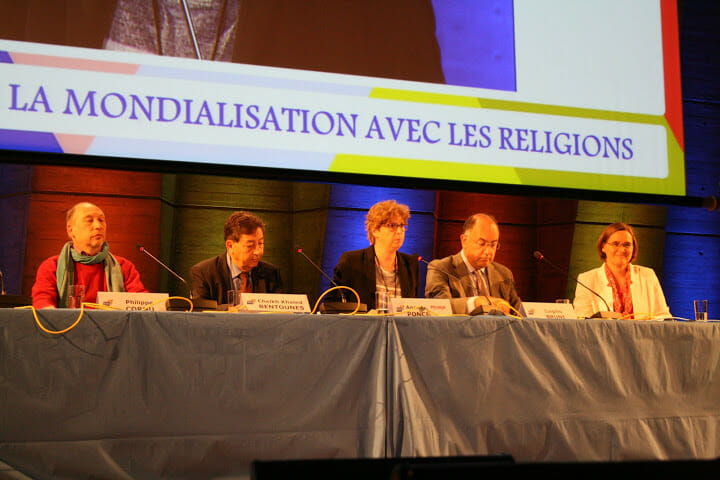
Oct 7, 2015 | Focolare Worldwide
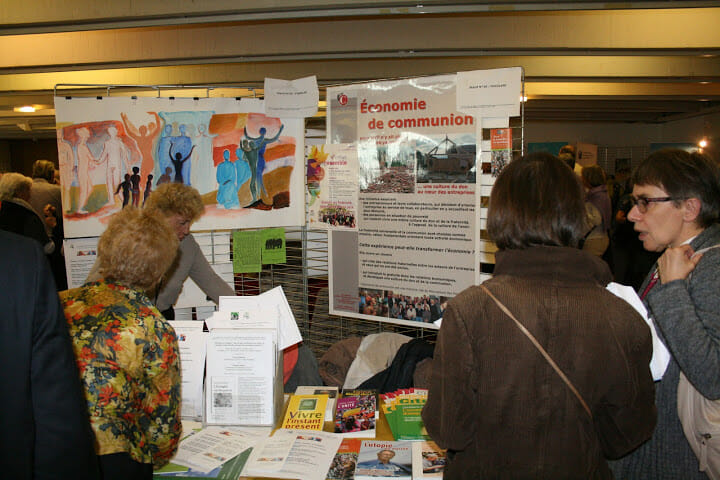
© Focolari-Alain Boudre
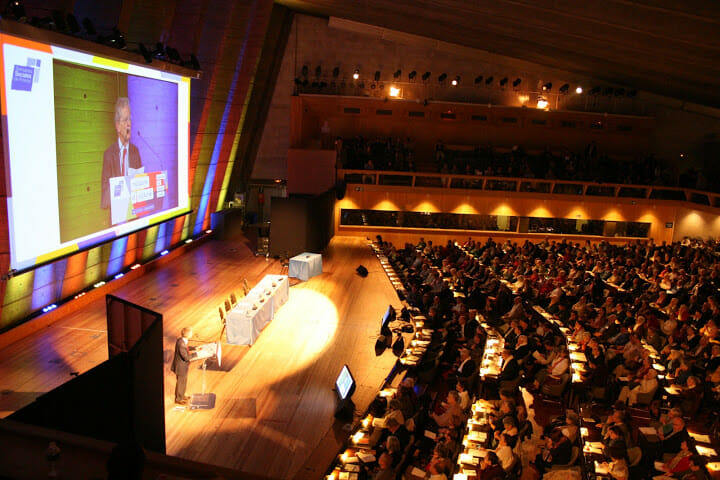
© Focolari-Alain Boudre

© Focolari-Alain Boudre
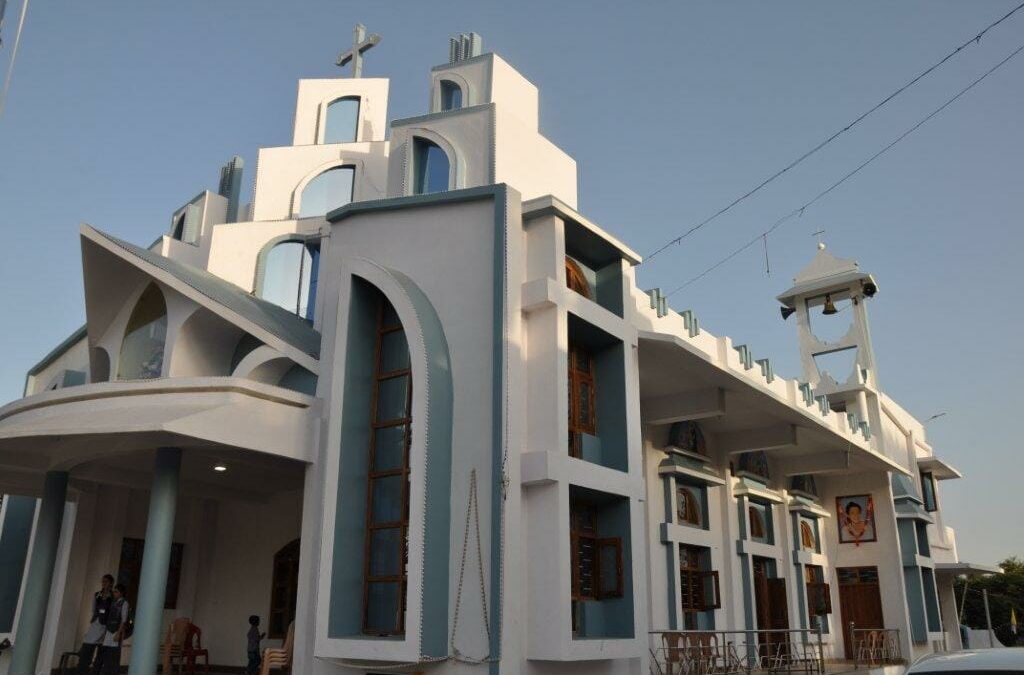
Oct 7, 2015 | Focolare Worldwide
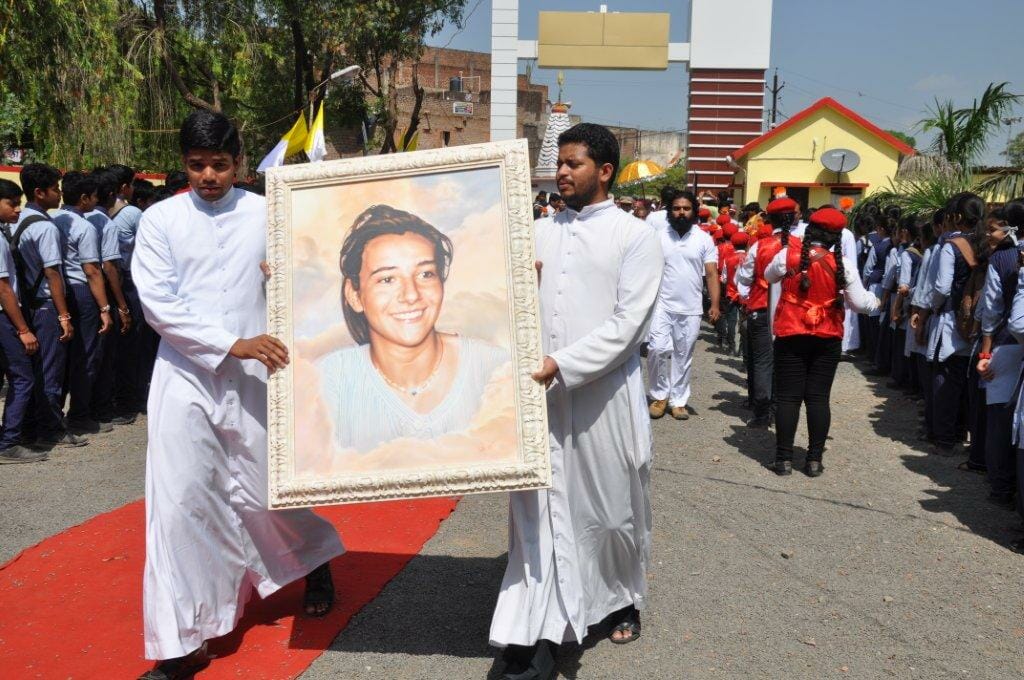 Msgr. Anthony Chirayath, bishop of the Syro-Malabar diocese of Sagar, consecrated the new church in the presence of the parents of Chiara Luce Badano, saying it was “an inspiration to all students in the country”. The couple arrived from Italy for the occasion at the invitation of the bishop. Many faithful and young students of local high schools, as well as groups of adherents to the Focolare Movement from Mumbai and Delhi, attended the ceremony.
Msgr. Anthony Chirayath, bishop of the Syro-Malabar diocese of Sagar, consecrated the new church in the presence of the parents of Chiara Luce Badano, saying it was “an inspiration to all students in the country”. The couple arrived from Italy for the occasion at the invitation of the bishop. Many faithful and young students of local high schools, as well as groups of adherents to the Focolare Movement from Mumbai and Delhi, attended the ceremony. 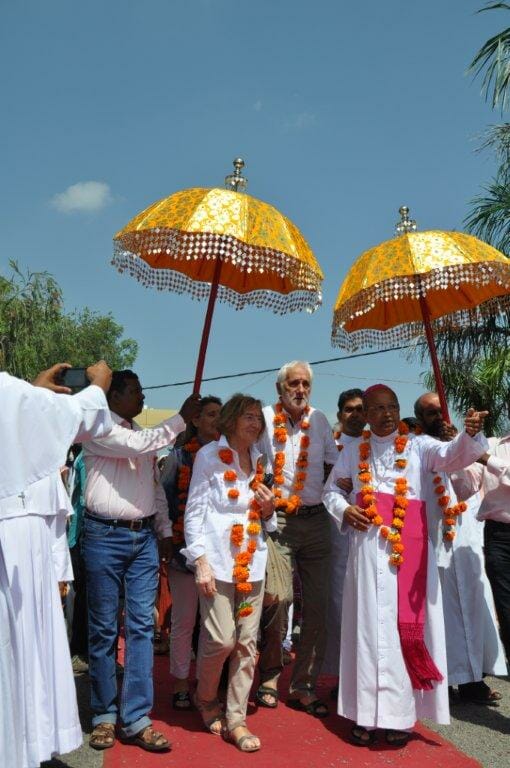 Chiara Badano, named Chiara “Luce” by Chiara Lubich, founder of the Movement (or Work of Mary), was a young Italian, who died at the age of 18 from aggressive bone cancer. She was beatified on 25 September 2010 by Pope Benedict XVI, who acknowledged her heroic virtues and tireless work for the poor, despite the pain of the disease from which she suffered. The Sironi church was dedicated to the Blessed at the express will of Msgr. Chirayath, who learned of the life of Chiara Luce during one of his trips in Italy. Keeping in mind the large youth population that resides in the Indian town and who attend the prestigious English schools in the district, Bishop Sagar sensed that Chiara’s life could serve as an “example and inspiration for students.” The celebrations were attended by Maria Teresa and Ruggero, the parents of the young Blessed, accompanied by her best friend Chicca Coriasco and her brother Franz Coriasco, who wrote Chiara Luce’s biography. Approximately 1,000 participants attended, including priests, religious, seminarians, teachers, high school students and young Focolare members, who organised performances to celebrate the event.
Chiara Badano, named Chiara “Luce” by Chiara Lubich, founder of the Movement (or Work of Mary), was a young Italian, who died at the age of 18 from aggressive bone cancer. She was beatified on 25 September 2010 by Pope Benedict XVI, who acknowledged her heroic virtues and tireless work for the poor, despite the pain of the disease from which she suffered. The Sironi church was dedicated to the Blessed at the express will of Msgr. Chirayath, who learned of the life of Chiara Luce during one of his trips in Italy. Keeping in mind the large youth population that resides in the Indian town and who attend the prestigious English schools in the district, Bishop Sagar sensed that Chiara’s life could serve as an “example and inspiration for students.” The celebrations were attended by Maria Teresa and Ruggero, the parents of the young Blessed, accompanied by her best friend Chicca Coriasco and her brother Franz Coriasco, who wrote Chiara Luce’s biography. Approximately 1,000 participants attended, including priests, religious, seminarians, teachers, high school students and young Focolare members, who organised performances to celebrate the event. 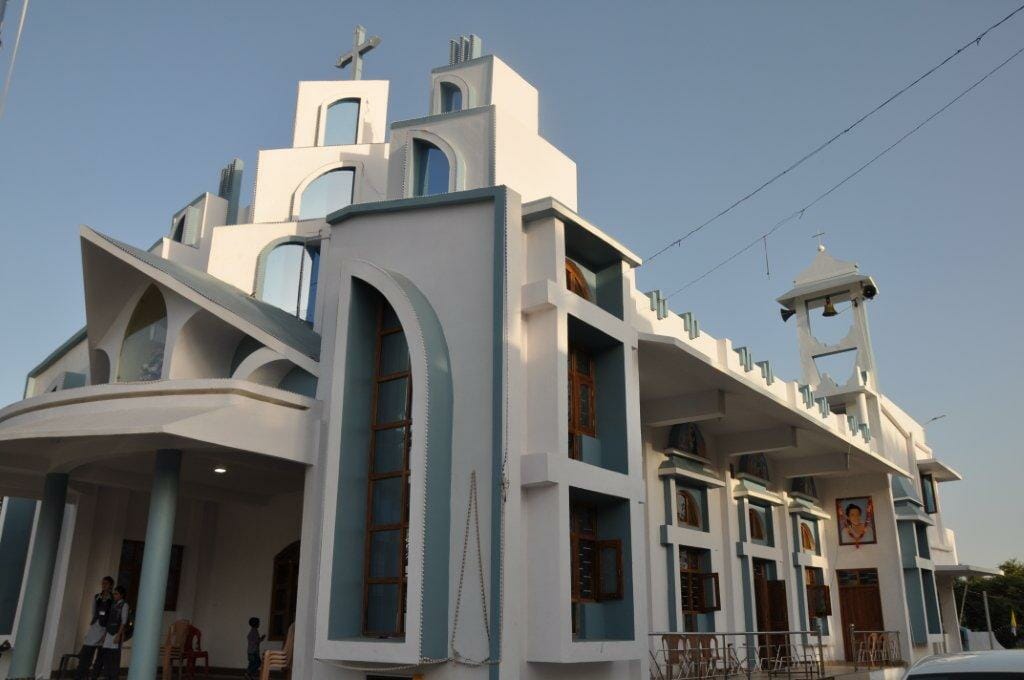 After the inauguration of the church, the parents and friends of Chiara Luce met some members of the Focolare Movement in Mumbai, eager to express their gratitude for the “witness of love and unity”. Also in Mumbai they had a meeting with “Jesusfriends4u”, a youth group inspired by the example of the life of the girl, who awarded the Badano’s the first prize dedicated to their daughter, the Effective Parenting Award. Source: Asia News
After the inauguration of the church, the parents and friends of Chiara Luce met some members of the Focolare Movement in Mumbai, eager to express their gratitude for the “witness of love and unity”. Also in Mumbai they had a meeting with “Jesusfriends4u”, a youth group inspired by the example of the life of the girl, who awarded the Badano’s the first prize dedicated to their daughter, the Effective Parenting Award. Source: Asia News
Oct 7, 2015 | Non categorizzato
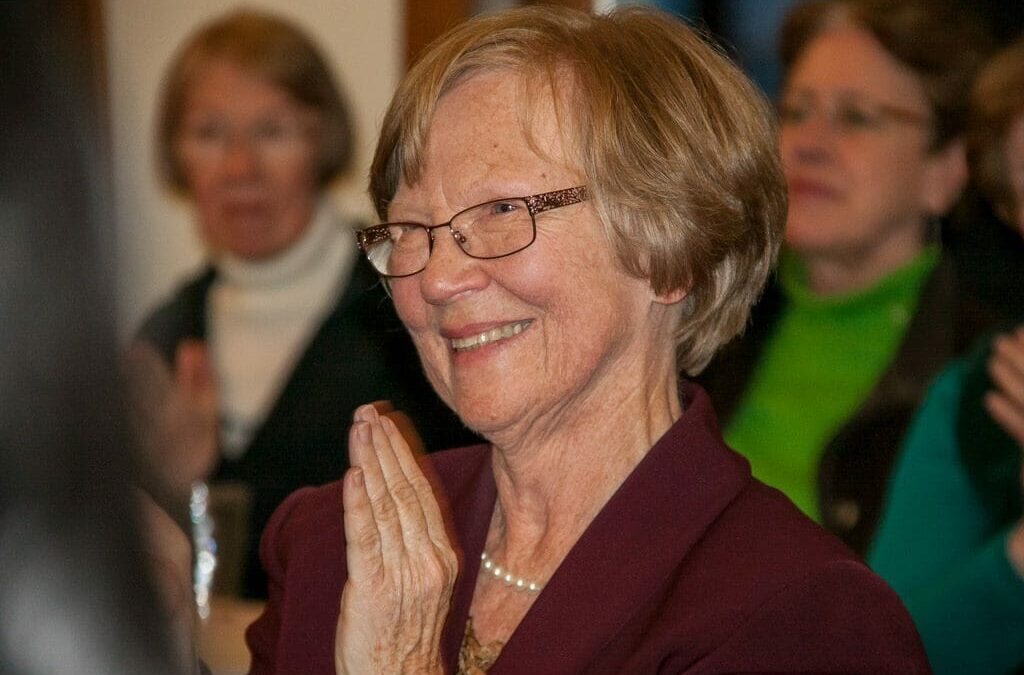
Oct 6, 2015 | Non categorizzato
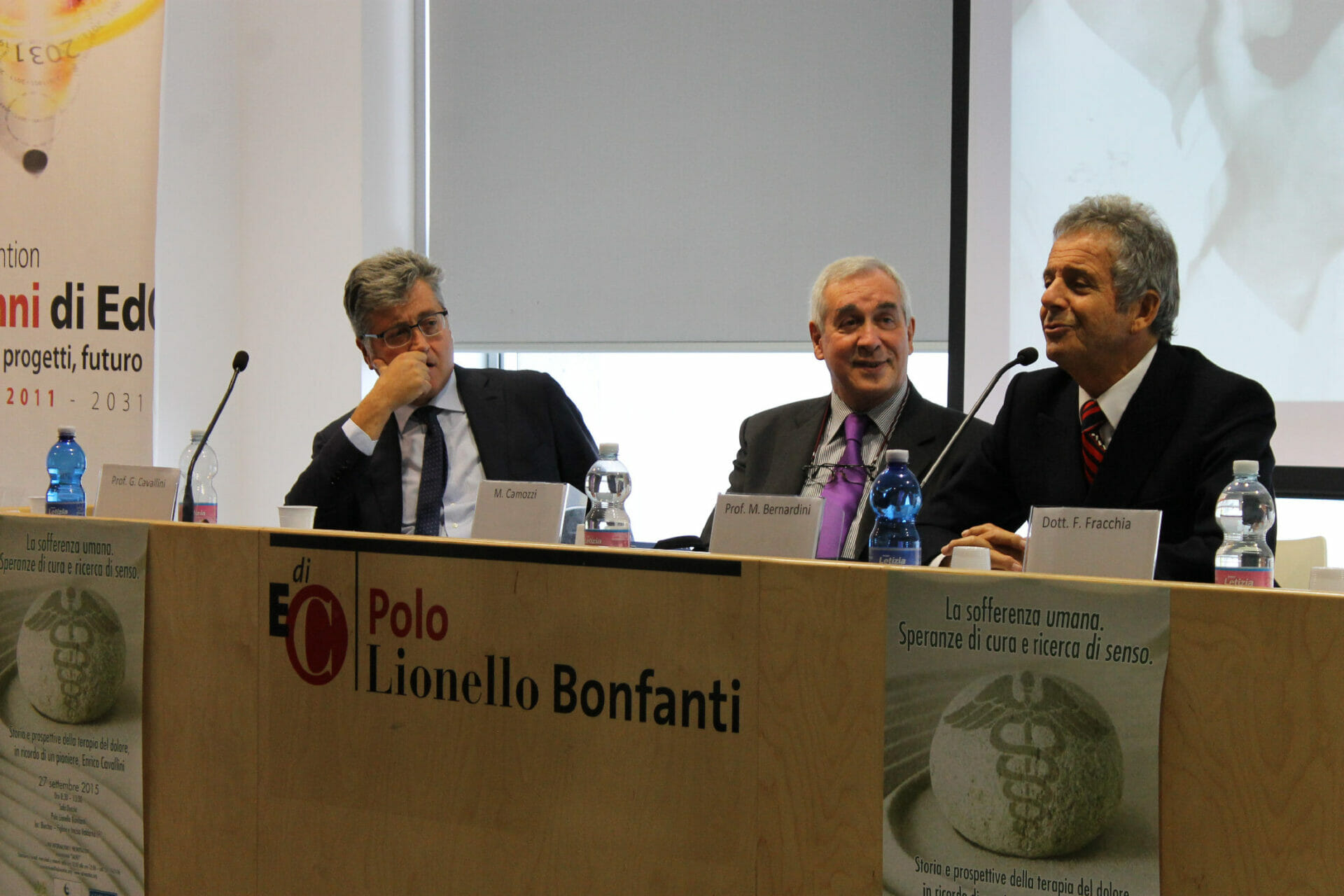 Nancy O’Donnell has worked as a psychotherapist with drug addicts and was once in charge of a medical centre that helps alcoholic women and their children. The issue of the meaning of suffering is central to the lives of people especially during their illness. We would like to ask if it is possible to face the problem of illness and find hope. “Suffering is part of every human life and it would be very difficult to help those who suffer if we ourselves have not found meaning in our own suffering. The path towards hope lies in this effort. Science offers new treatments and new therapies to improve the lives of many. The danger is when we let ourselves be fooled, believing that we will find a way not to get old, sick or suffer. If we seek only the hope of healing, we run the risk of deceiving ourselves, and this may lead to desperation which is the opposite of hope.” What is the role of psychology in the experience of the sick people, and in helping them to find hope? “We could summarise it in four points: the role of the personality and the possibility to change it, the importance of healthy relationships in facing disease, the need to know and accept one’s own limits, and the human capacity to be a gift to others. Personality: being optimistic or having a positive attitude may reduce the risk of illnesses and chronic disorders. At the Davis University in California, they discovered that writing down each day the things you are grateful for helped to increase happiness. The results were more significant when compared with a group that was asked to note down instead, only the things that had provoked greater stress.
Nancy O’Donnell has worked as a psychotherapist with drug addicts and was once in charge of a medical centre that helps alcoholic women and their children. The issue of the meaning of suffering is central to the lives of people especially during their illness. We would like to ask if it is possible to face the problem of illness and find hope. “Suffering is part of every human life and it would be very difficult to help those who suffer if we ourselves have not found meaning in our own suffering. The path towards hope lies in this effort. Science offers new treatments and new therapies to improve the lives of many. The danger is when we let ourselves be fooled, believing that we will find a way not to get old, sick or suffer. If we seek only the hope of healing, we run the risk of deceiving ourselves, and this may lead to desperation which is the opposite of hope.” What is the role of psychology in the experience of the sick people, and in helping them to find hope? “We could summarise it in four points: the role of the personality and the possibility to change it, the importance of healthy relationships in facing disease, the need to know and accept one’s own limits, and the human capacity to be a gift to others. Personality: being optimistic or having a positive attitude may reduce the risk of illnesses and chronic disorders. At the Davis University in California, they discovered that writing down each day the things you are grateful for helped to increase happiness. The results were more significant when compared with a group that was asked to note down instead, only the things that had provoked greater stress. 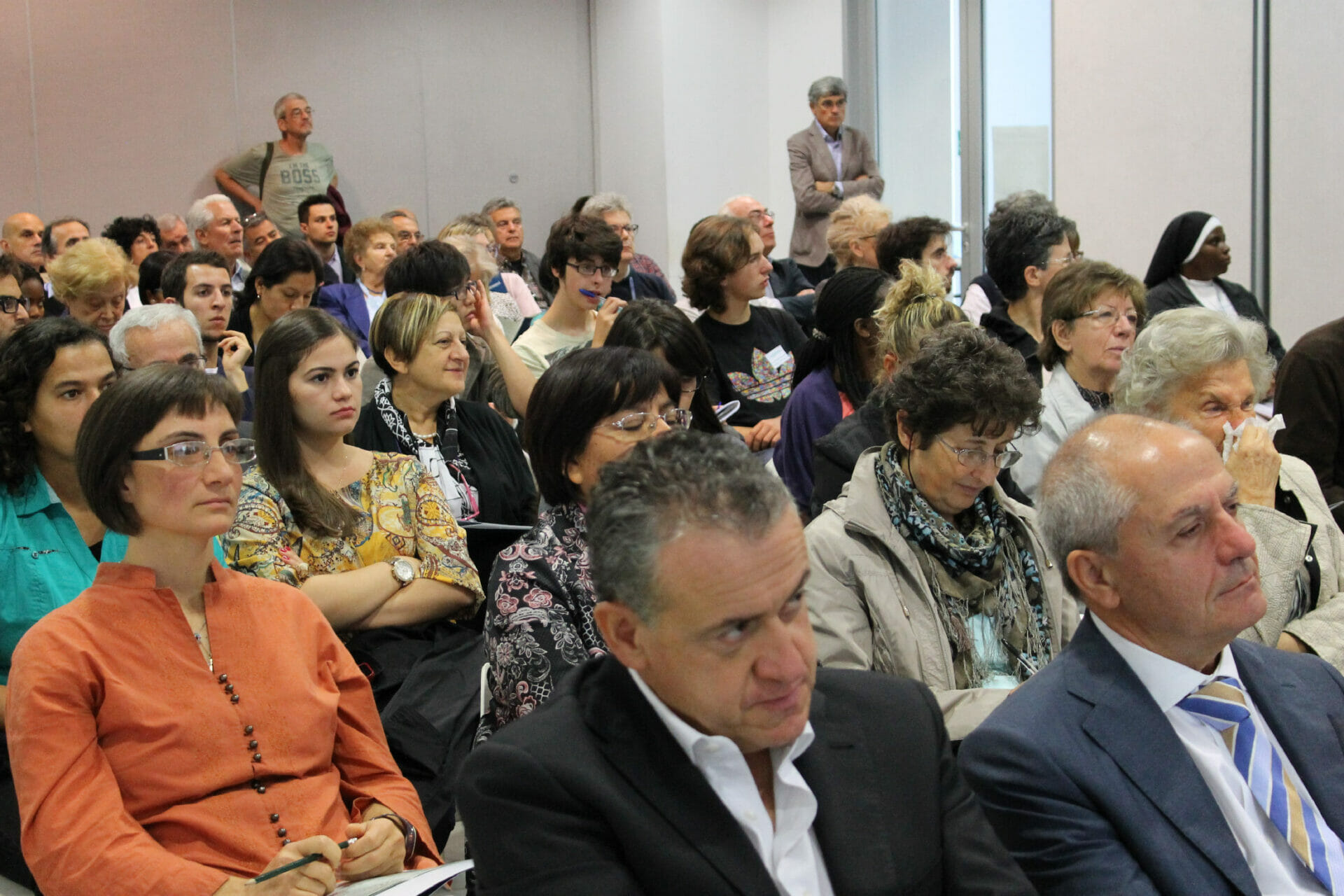 The second point: relationships. From the moment we are born, we have the capacity to establish relationships. The mental health of every person depends on his capacity to “coordinate” himself and “tune in” with others. The human mind is healthy when it possesses some strategic relational skills that allow it to “open up” to a multitude of social realities, that is, with the ability to “perceive” the others and their diversity in an adequate manner. If our identity is relational, it would be logical in moments when nurturing hope becomes a challenge to find the support of people close to us and with whom we have built deep relationships which strengthen the positive energy we need to remain hopeful. Furthermore, not accepting one’s own limits is one of the most typical difficulties people have today. The limit appears through the person’s condition and his/her story, through those experiences that imply the risk of frustration. In a world that offers us a life “without limits,” the onset of illness takes on numerous expressions of that limitation which becomes a decisive transition towards achieving one’s own fulfillment. Lastly, being a gift for the others even when your physical strength is greatly reduced makes a person play an active role always. This is where you acquire a dignity that is born in the depths of our being.”
The second point: relationships. From the moment we are born, we have the capacity to establish relationships. The mental health of every person depends on his capacity to “coordinate” himself and “tune in” with others. The human mind is healthy when it possesses some strategic relational skills that allow it to “open up” to a multitude of social realities, that is, with the ability to “perceive” the others and their diversity in an adequate manner. If our identity is relational, it would be logical in moments when nurturing hope becomes a challenge to find the support of people close to us and with whom we have built deep relationships which strengthen the positive energy we need to remain hopeful. Furthermore, not accepting one’s own limits is one of the most typical difficulties people have today. The limit appears through the person’s condition and his/her story, through those experiences that imply the risk of frustration. In a world that offers us a life “without limits,” the onset of illness takes on numerous expressions of that limitation which becomes a decisive transition towards achieving one’s own fulfillment. Lastly, being a gift for the others even when your physical strength is greatly reduced makes a person play an active role always. This is where you acquire a dignity that is born in the depths of our being.”
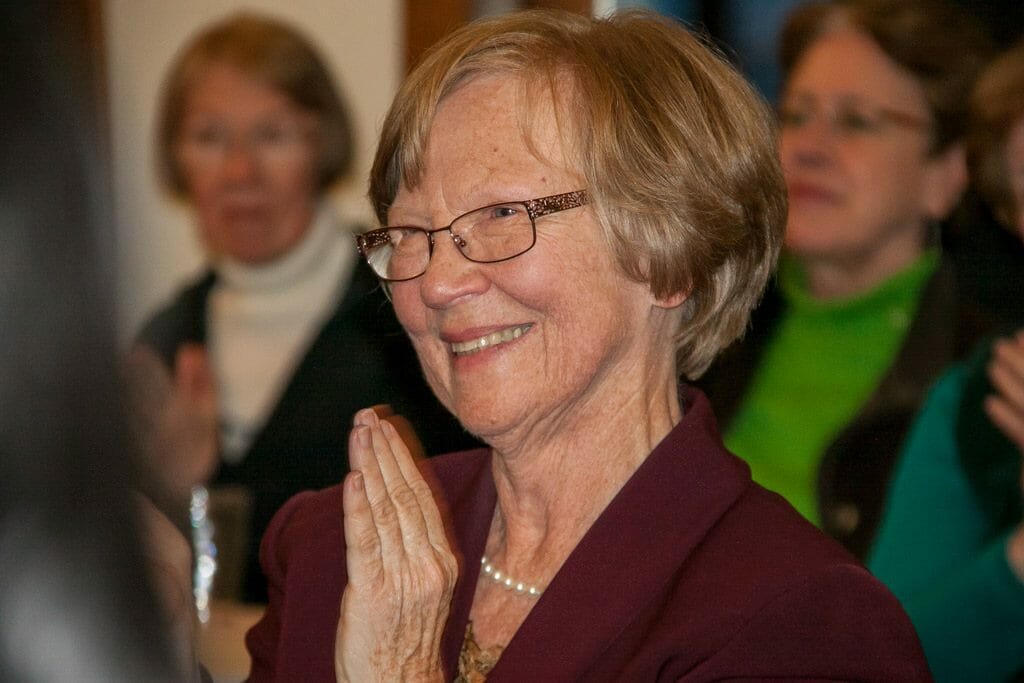
Dr Nancy O’Connell
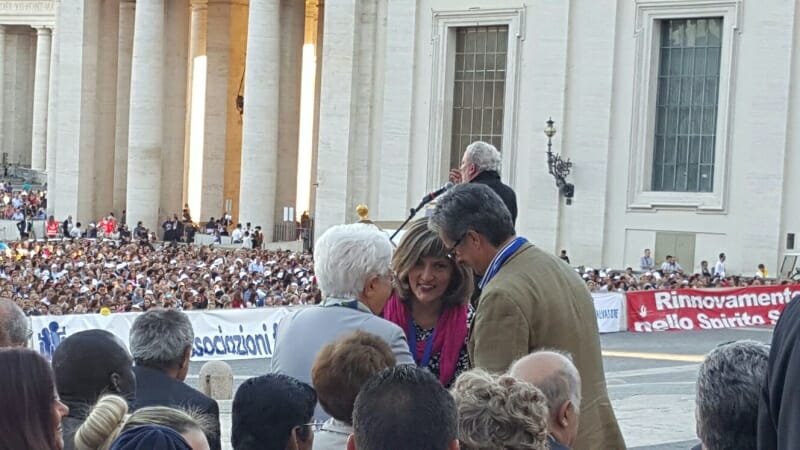
Oct 5, 2015 | Non categorizzato
 Maria Voce took part in the prayer vigil in St. Peter’s Square on Saturday, October 3rd where she gave a short talk. The journalist began by asking her: Why is this time of prayer so important? “It is because, as Christians, we believe it is above all the Holy Spirit who should be at work. This is a very delicate time when we hear many different opinions in the media. But it is only the Holy Spirit who can satisfy the great expectations, and do so as He wants and not how people think. So the most important thing is to pray for special help from the Holy Spirit, first of all for the Pope and then for all the Synod Fathers.” It helps us broaden our horizons a bit… “The family is the most wounded part of humanity at the moment. In a certain sense, it is like a sick daughter who the Church is watching over with a mother’s love, wanting her to get well. The Church is doing this act of pastoral conversion to care to one of its members who is suffering. I think all of us should have this attitude. I think we should disregard expectations for some kind of major changes from the doctrinal point of view or in the laws that govern the institution of marriage. I think that the greatest expectation is to ask ourselves as a Church what conversion is required of us towards these suffering brothers and sisters. The family is bombarded from all sides nowadays, by politics and by business lobbies; by those who want to take advantage of family issues as opportunities to pursue their own interests. The Focolare Movement has always had special concern for the family. One of its branches is especially dedicated to them and seeks to follow all the families in the world. They help prepare young people for marriage so that they can face married life with greater awareness. As far as possible they also help them find what they need (work, home, and so on) so as to start a family. And after marriage, they accompany these young couples on their new journey so that at the first signs of possible crises, which are natural, they may find a community ready to welcome and make them feel that they are not alone, that the love of the community is always present and caring. They do courses on addressing crises, with trained specialists. They help people who are separated and also those who are divorced and remarried, so that they feel, even in these circumstances, that they are members of the community and are loved and respected in their dignity as God’s children. They are helped to discover that being part of the community does not only mean sharing in the Eucharist but is manifested in living Gospel love together, sharing joys and sufferings, experiencing the closeness of God and the Church. The Synod asks all of us to make this conversion together, and this seems to me to be very important. However, I do not think that we should only focus on the divorced and remarried. The Synod is concerned with the family in its whole lifespan: widows, parents with young people who cannot find work, refugees, children, and so on. We need to look at the family as an icon of today’s society: it is humanity today that is suffering in the family. And humanity today must take on this suffering family and make this burden its own.” So the family is an encounter with the Church “going outwards” as Pope Francis continually urges us? “Absolutely! I believe it is the family that you can bear witness to the possibility of deep personal relationships, not only those you have by phone or on the internet. It is person to person relationships, with your children’s friends, and their parents, for example. Our role as laypeople is to be alongside everyone, to leave our own safe backyard so as to journey with them every day, in schools, at work, in the daily problems. This is why laity are at the Synod, and we too are very glad that a Focolare couple from Colombia were invited as auditors, Angelica Maria and José Luis from Colombia.” Last year, there was a couple from Rwanda, am I right? “Yes. I think that these married lay people at the Synod bring all the challenges that they too live and encounter, together with the others. Naturally, the Synod Fathers come with all the experiences, statements and sufferings that they have collected around the world. But this encounter between the ministerial Church and the laity is good. The Church is just one reality in which lay people and priests are together. The Church is the people of God on the move, taking care of all her children.” Listen to the complete interview of Radio Inblu with Maria Voce, 3 October 2015 (in Italian from 11’ 15’’)
Maria Voce took part in the prayer vigil in St. Peter’s Square on Saturday, October 3rd where she gave a short talk. The journalist began by asking her: Why is this time of prayer so important? “It is because, as Christians, we believe it is above all the Holy Spirit who should be at work. This is a very delicate time when we hear many different opinions in the media. But it is only the Holy Spirit who can satisfy the great expectations, and do so as He wants and not how people think. So the most important thing is to pray for special help from the Holy Spirit, first of all for the Pope and then for all the Synod Fathers.” It helps us broaden our horizons a bit… “The family is the most wounded part of humanity at the moment. In a certain sense, it is like a sick daughter who the Church is watching over with a mother’s love, wanting her to get well. The Church is doing this act of pastoral conversion to care to one of its members who is suffering. I think all of us should have this attitude. I think we should disregard expectations for some kind of major changes from the doctrinal point of view or in the laws that govern the institution of marriage. I think that the greatest expectation is to ask ourselves as a Church what conversion is required of us towards these suffering brothers and sisters. The family is bombarded from all sides nowadays, by politics and by business lobbies; by those who want to take advantage of family issues as opportunities to pursue their own interests. The Focolare Movement has always had special concern for the family. One of its branches is especially dedicated to them and seeks to follow all the families in the world. They help prepare young people for marriage so that they can face married life with greater awareness. As far as possible they also help them find what they need (work, home, and so on) so as to start a family. And after marriage, they accompany these young couples on their new journey so that at the first signs of possible crises, which are natural, they may find a community ready to welcome and make them feel that they are not alone, that the love of the community is always present and caring. They do courses on addressing crises, with trained specialists. They help people who are separated and also those who are divorced and remarried, so that they feel, even in these circumstances, that they are members of the community and are loved and respected in their dignity as God’s children. They are helped to discover that being part of the community does not only mean sharing in the Eucharist but is manifested in living Gospel love together, sharing joys and sufferings, experiencing the closeness of God and the Church. The Synod asks all of us to make this conversion together, and this seems to me to be very important. However, I do not think that we should only focus on the divorced and remarried. The Synod is concerned with the family in its whole lifespan: widows, parents with young people who cannot find work, refugees, children, and so on. We need to look at the family as an icon of today’s society: it is humanity today that is suffering in the family. And humanity today must take on this suffering family and make this burden its own.” So the family is an encounter with the Church “going outwards” as Pope Francis continually urges us? “Absolutely! I believe it is the family that you can bear witness to the possibility of deep personal relationships, not only those you have by phone or on the internet. It is person to person relationships, with your children’s friends, and their parents, for example. Our role as laypeople is to be alongside everyone, to leave our own safe backyard so as to journey with them every day, in schools, at work, in the daily problems. This is why laity are at the Synod, and we too are very glad that a Focolare couple from Colombia were invited as auditors, Angelica Maria and José Luis from Colombia.” Last year, there was a couple from Rwanda, am I right? “Yes. I think that these married lay people at the Synod bring all the challenges that they too live and encounter, together with the others. Naturally, the Synod Fathers come with all the experiences, statements and sufferings that they have collected around the world. But this encounter between the ministerial Church and the laity is good. The Church is just one reality in which lay people and priests are together. The Church is the people of God on the move, taking care of all her children.” Listen to the complete interview of Radio Inblu with Maria Voce, 3 October 2015 (in Italian from 11’ 15’’)
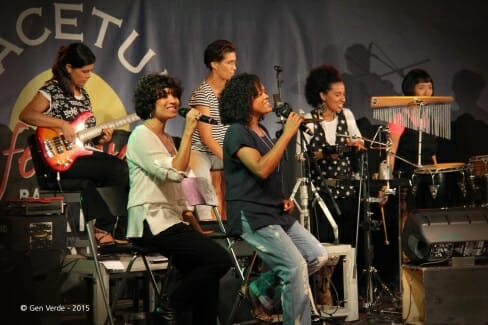
Oct 5, 2015 | Focolare Worldwide, Senza categoria
 “We worked hard. For three years we listened to thousands of people, especially the young people that we met at home or on tour. We composed music and wrote lyrics, but above all strived to live out the meaning of our words: putting ourselves in the game, taking risks, welcoming both the ugly and beautiful in humanity. We can’t wait to go to Great Britain. The one talking is Sally McAllister, Gen Verde’s manager, Irish by birth and English by adoption: “I’ve lived in London for more than 30 years and learnt to know and love the people. So it is with much joy that we are accepting the invitation to return there.” The Focolare has been in Great Britain since 1963, spread throughout many cities of the United Kingdom, and its members are Roman Catholic, Anglican and faithful of the Free Churches. There are also Muslims and Sikhs who, in their own way, are true witnesses of a living unity that is at times lived out painstakingly in daily life. “Why did they invite us,” Sally asks. “The Focolare communities arranged the entire tour:a group of twenty young people and adults, families that are spread throughout the United Kingdom. We dreamed it up and organised it together. They told us that they wanted to open hearts and hands, to recompose relationships, overcome hatreds and distrust: to encounter the people and share the gift of communion in diversity.” “That took courage, and I must say that these people have a good dose of it! We’ll have 12 engagements with a total of 7 “Start Now” shows, 5 acoustic concerts and several other encounters.” Listening to Sally’s words one realises that they are only the tip of the iceberg and that Gen Verde’s musical tour in the United Kingdom is capable of touching a chord with the people. “We’ll go on stage in complex places like London, Birmingham, Glasgow, Oxford, Liverpool, Portsmouth and Cardiff,” Sally explained, “with a social and cultural fabric that has been defined as post-Christian and disintegrating, but where ecumenical and interreligious dimensions are still strong. Through the music, words and choreography we will describe the life amongst us and many other parts of the world: a life of communion, fraternity, sacrifice and reciprocity. We would like to show the ‘much more’ that is already there but not being spotlighted by British society; what is being done for others but risks remaining hidden behind media titles that often broadcast exclusion, defensiveness and fear.” In London, Gen Verde will also meet young people from the Islamic Centre, invited by Imam Dr. Mohammad Ali Shomali. “Let us focus on the values that unite us and and work together.” Judging by the passion that Sally is putting into this, it is obvious that young people will have the place of honour during this tour: “They are the thermometer of society, they often live in the darkest depths and it is no mystery that even Great Britain, like other European countries, violence and suicides are very much on the rise amongst people under 30. The new show that will go on stage in Great Britain will also include some new pieces “On the Other Side,” their latest released album. “It is geared towards young people and its themes are universal. It presents a journey in four parts: We begin with the challenges, the deep ones, the ones that make you look into yourself. Then comes the question: Is it even possible to overcome them? Finally, there is the invitation to go out and build the present and the future together, and this part is called “No frontiers,” because together we can make the difference.” See official Focolare website for news and events: www.focolare.org/gb https://www.youtube.com/watch?v=llkkHKzywrM
“We worked hard. For three years we listened to thousands of people, especially the young people that we met at home or on tour. We composed music and wrote lyrics, but above all strived to live out the meaning of our words: putting ourselves in the game, taking risks, welcoming both the ugly and beautiful in humanity. We can’t wait to go to Great Britain. The one talking is Sally McAllister, Gen Verde’s manager, Irish by birth and English by adoption: “I’ve lived in London for more than 30 years and learnt to know and love the people. So it is with much joy that we are accepting the invitation to return there.” The Focolare has been in Great Britain since 1963, spread throughout many cities of the United Kingdom, and its members are Roman Catholic, Anglican and faithful of the Free Churches. There are also Muslims and Sikhs who, in their own way, are true witnesses of a living unity that is at times lived out painstakingly in daily life. “Why did they invite us,” Sally asks. “The Focolare communities arranged the entire tour:a group of twenty young people and adults, families that are spread throughout the United Kingdom. We dreamed it up and organised it together. They told us that they wanted to open hearts and hands, to recompose relationships, overcome hatreds and distrust: to encounter the people and share the gift of communion in diversity.” “That took courage, and I must say that these people have a good dose of it! We’ll have 12 engagements with a total of 7 “Start Now” shows, 5 acoustic concerts and several other encounters.” Listening to Sally’s words one realises that they are only the tip of the iceberg and that Gen Verde’s musical tour in the United Kingdom is capable of touching a chord with the people. “We’ll go on stage in complex places like London, Birmingham, Glasgow, Oxford, Liverpool, Portsmouth and Cardiff,” Sally explained, “with a social and cultural fabric that has been defined as post-Christian and disintegrating, but where ecumenical and interreligious dimensions are still strong. Through the music, words and choreography we will describe the life amongst us and many other parts of the world: a life of communion, fraternity, sacrifice and reciprocity. We would like to show the ‘much more’ that is already there but not being spotlighted by British society; what is being done for others but risks remaining hidden behind media titles that often broadcast exclusion, defensiveness and fear.” In London, Gen Verde will also meet young people from the Islamic Centre, invited by Imam Dr. Mohammad Ali Shomali. “Let us focus on the values that unite us and and work together.” Judging by the passion that Sally is putting into this, it is obvious that young people will have the place of honour during this tour: “They are the thermometer of society, they often live in the darkest depths and it is no mystery that even Great Britain, like other European countries, violence and suicides are very much on the rise amongst people under 30. The new show that will go on stage in Great Britain will also include some new pieces “On the Other Side,” their latest released album. “It is geared towards young people and its themes are universal. It presents a journey in four parts: We begin with the challenges, the deep ones, the ones that make you look into yourself. Then comes the question: Is it even possible to overcome them? Finally, there is the invitation to go out and build the present and the future together, and this part is called “No frontiers,” because together we can make the difference.” See official Focolare website for news and events: www.focolare.org/gb https://www.youtube.com/watch?v=llkkHKzywrM
















